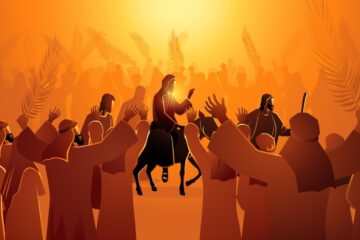Devotional July 26: G-d Plays the Field

My favorite book of the Bible is the book of Jeremiah. The reason that I love this book is that it does not have a “happy ending.” All throughout the book, Jeremiah does what G-d tells him to do and in response he is beaten, thrown into a cistern/well, put in prison, and at the end, there is no mention of everything working out wonderfully for Jeremiah. However, I am sure that Jeremiah did receive his reward. All throughout then book, Jeremiah also complains to G-d.
However, one thing has recently stood out to me in the book, as I have been reading through it for the uncountable time, I have been noticing that several of the people in the throne room of the king in Jerusalem, serving as advisors and other court officials, were not ethnically Jewish. Now I know that not all Jewish people are of Jewish ethnicity. I know African Americans who are Jewish and I know Asian Chinese people who are Jewish. And I know people of Jewish ethnicity who are Christians and Buddhists. It impresses me because it reminds me that G-d is no respecter of persons. That is, He truly does bring people from the East and from the West and the North and South to sit at His table (Luke 13:29).
Ebed-Melech the Ethopian (or Cushite) was one mentioned in the book of Jeremiah. All the people in King Zedekiah’s court were not people who wanted to honor God. However, Eded wanted to. When Zedekiah was advised to throw Jeremiah into the well, Eded went and got him out. Not only did he get him out, but he showed Jeremiah kindness by making sure that Jeremiah was not injured in the process of getting him out. It is not clear if he was a servant or a slave of Zedekiah since that is what “Eded-Melech” means. Regardless, he chose to serve God and God’s people. To thank him for his help, the Lord gave a special word to Jeremiah for Eded promising that he would not be killed by the Babylonians because he trusted in the Lord.
Another foreigner who was on G-d’s side was the captain of Nebuchadnezzar’s army, Nebuzaradan. After the fall of Jerusalem, in Jeremiah 39:11-14 he took Jeremiah out of court guardhouse where he was confined and had him fed, clothed, taken care of. Then he gives Jeremiah the choice to stay in Jerusalem or come to Babylon. But what he says to Jeremiah is most interesting. Here he was a a Chaldean, a Babylonian but he says: “The Lord your God promised this calamity against this place and the Lord has brought it on and done just as He promised because you people sinned against the Lord and did not listen to His voice….”
How did he know that? He must have gotten that word from G-d somehow. Obviously he was in the know regarding spiritual things. I think he was a man who trusted the Lord, too.
Yet another foreigner that was not mentioned in the book of Jeremiah, yet we probably have all heard of is poor Uriah the Hittite from the story of King David and Bath-Sheba.. Some scholars debate if he was really a Hittite or if that is supposed to mean something else. However, one thing is clear. Uriah loved Israel, G-d’s people and G-d. Sometimes his refusal to lie with his wife Bath-Sheba under David’s command can be seen as callousness toward his wife. However, I prefer to see it as devotion to G-d. He believed in what he was doing. His dedication to his country’s defense was a religious thing for him. It is too bad that his own king or the Jewish people did not feel the same love for him.
There are so many other people in the Bible from different countries and places that we could mention: Greeks, Africans, Romans, men, women, all chosen by G-d to give His message and called to relationship with Him. G-d is no respecter of persons. He is respecter of His covenant. As such, we are all able to partake in the richness of the Lord’s goodness and promises.
Matthew 3:9: Jesus said, ‘And do not presume to say to yourselves, ‘We have Abraham as our father,’ for I tell you, God is able from these stones to raise up children for Abraham.’
————————————————————W.







No Comment